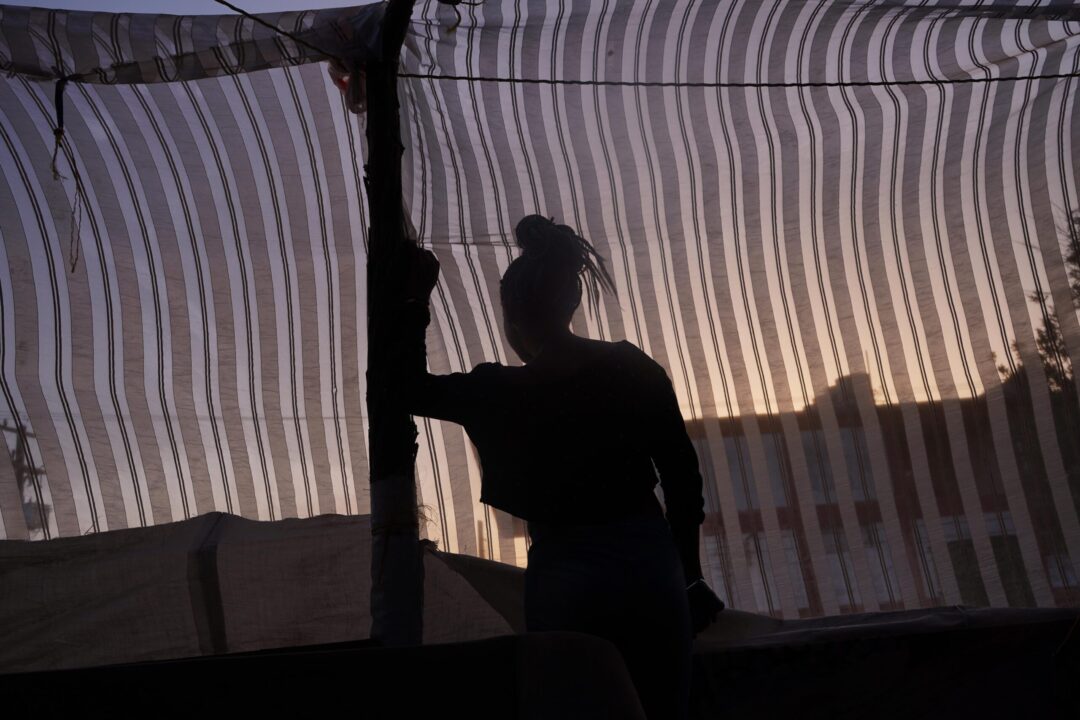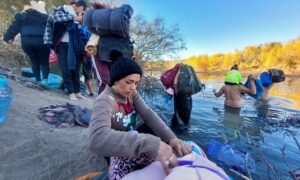Kidnapped by cartels, pursued by Mexican and American authorities, without medical attention, and stigmatized for interrupting a pregnancy, these are the conditions in which migrant women clandestinely undergo abortions
By Alicia Fernández / La Verdad
Valentina migrated from her native Venezuela. She is 28 years old and pregnant. It is her third pregnancy on her journey through Mexico on her way to the United States. She lost her first two babies through miscarriages.
“It was like dying in the bathroom alone,” she says from inside a tent in a makeshift camp near a border town of Matamoros, Tamaulipas, where she shares space with around 1,500 migrants, most of them men.
Her journey through almost a dozen countries – Colombia, Chile, Argentina, Bolivia, Peru, Ecuador, Panama, Costa Rica, Nicaragua, Honduras and Guatemala – happened without setbacks, including her journey through the Darién jungle: “thank God, no one raped me, no one touched me.”
Valentina – her real name was changed for safety reasons – says that the most difficult thing has been crossing Mexico, because after arriving from Guatemala, along the Suchiate River, she was abducted along with a group of migrants whom she met along the way.
“They put us on a truck where they set up a chase with the police and they were shooting and we were all stuck in the truck and it was incredibly scary,” she said.
She endured at least three kidnappings on her journey through Mexico before reuniting with her partner in Coatzacoalcos, Veracruz; together, they have been deprived of their freedom at least twice more. One of those times she was pregnant and lost her baby.
“I was already trying (to get pregnant). I’ve been with my husband for five years. I took off the device and came out pregnant twice, and both times I lost it because of the fright when the La Maña cartel abducted us,” Valentina said about her decision to remove the contraceptive Intrauterine Device (IUD), which she had inserted after having her first child, who remained with his grandfather back in her country.
Valentina arrived in Ciudad Juárez, crossed the border, but United States authorities sent her back to Mexico, where she was detained by National Immigration Institute agents and was transferred south, to Villahermosa, Tabasco, to be released. There she got in touch with her partner, who was transferred to Veracruz, where they met and made their way back to the north of the country, to Tamaulipas, to once more try to cross into the United States.
Although now her journey is more complicated because her body feels different, she barely managed to get a medical consultation with Doctors Without Borders and paid for an ultrasound. Like the majority of migrants who travel through Mexico on their way to the United States, Valentina lacks medical services.
It is not easy to migrate and get pregnant in a country that is not your own, nor is it easy if it happens along the way, said organizations that care for and accompany pregnant migrant women.
In the southern border, Ani Arenas, an independent midwife, travels from Veracruz to Tapachula, Chiapas, to care for pregnant women in critical points for migrants, such as the Viva México migration checkpoint, where migrants are forced to wait for their permit to proceed through Mexican territory.
A migrant woman arrives at this place looking for help because one of her traveling companions is having an abortion in a house: “She told us that she was pregnant. We arrived here and she started having belly pain… She already went to a house where they let her stay. There, she is losing a lot of fluid, I don’t know if she lost the baby,” Olga Manques, from Ecuador, tells the midwife.
Ani carries with her pregnancy tests, condoms and offers consultation to pregnant women. Her job is to serve this population that has few chances of accessing medical care and prevent abortions, however, many cases are outside her scope of action.
In Tamaulipas, a member of the Matamoros Decide collective, who asked that her name remained secret for safety reasons since she has been threatened and accused of being a ‘baby killer’ for offering accompaniment to women who wish to terminate a pregnancy, shares what she calls a “horror story”.
A 16-year-old Mexican teenager who emigrated from Guerrero requested support to terminate her pregnancy in a shelter. Her family doctor had provided her with misoprostol and she had shared with the shelter director her desire to have an abortion.
“If you can list how much violence a minor can suffer, she had all the vulnerabilities and, really, they violated her over and over and over; the local nurse ends up taking the product out of the toilet and giving it to her in her arms,” the activist, a healthcare professional, said.
The accompaniment was remote, and both the pregnant minor and the activist calculated it would be a nine-week product; however, when they proceeded with the abortion, they realized that she was at least 19 weeks pregnant, and so the shelter staff turned violent against the young woman.
The shelter director isolated the teen, took away her cell phone, and prevented her husband from going with her when she was forced into a minivan. They took her against her will to the General Hospital to perform a curettage on her because, as the activist says, the shelter director said they had to “clean her in there.”
At 5 in the morning they took her out of the hospital with the fetus in her arms. When she’s again able to communicate she calls the Matamoros Decide member and asks her: “what do I do with this?”
She later lost contact with the young woman so her attempt to take the case to a legal front did not move forward.
Something that worries her is that at least half of the accompaniment they have provided to migrant women are the result of sexual assault.
“It is important that they know that there are methods with pills that are safe, and that they can turn to them,” she said.
Overcrowded conditions in places such as campsites imply a greater challenge, since these abortion methods involve a process of at least nine hours with active diarrhea, which is difficult in a campsite with no or few bathrooms.
“That becomes a whole problem; that is, basically like other types of vulnerabilities that we had not faced as companions,” she said.
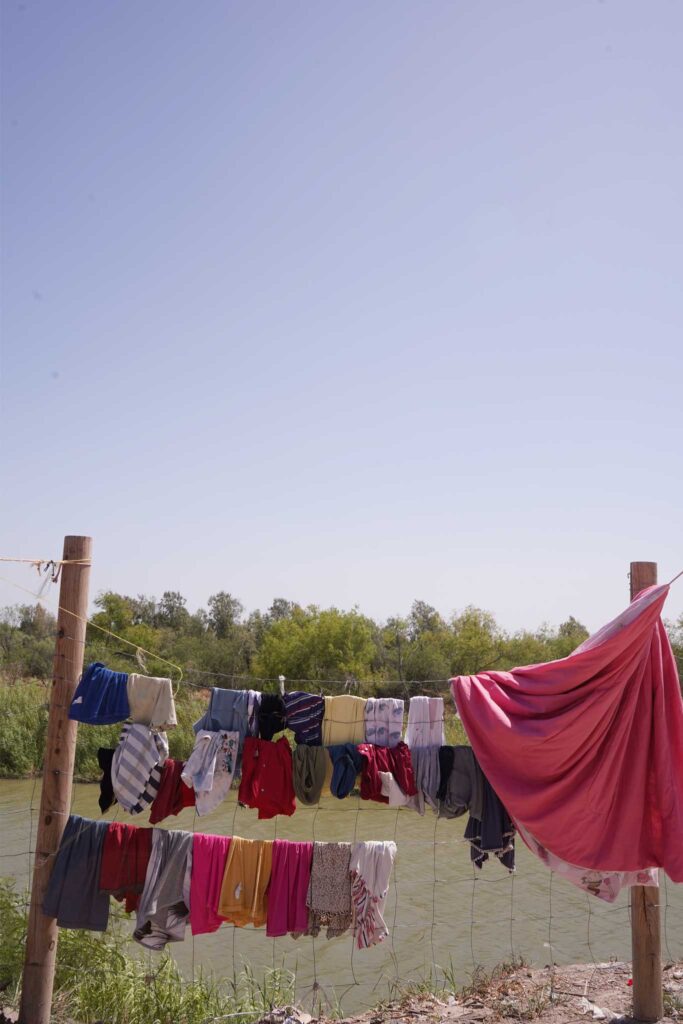
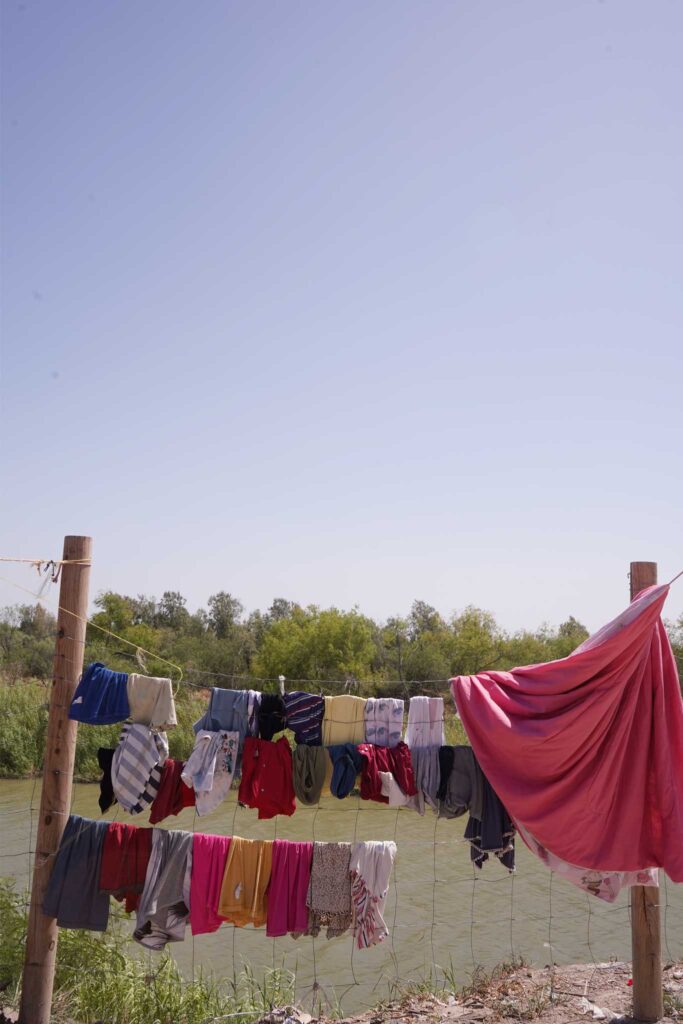
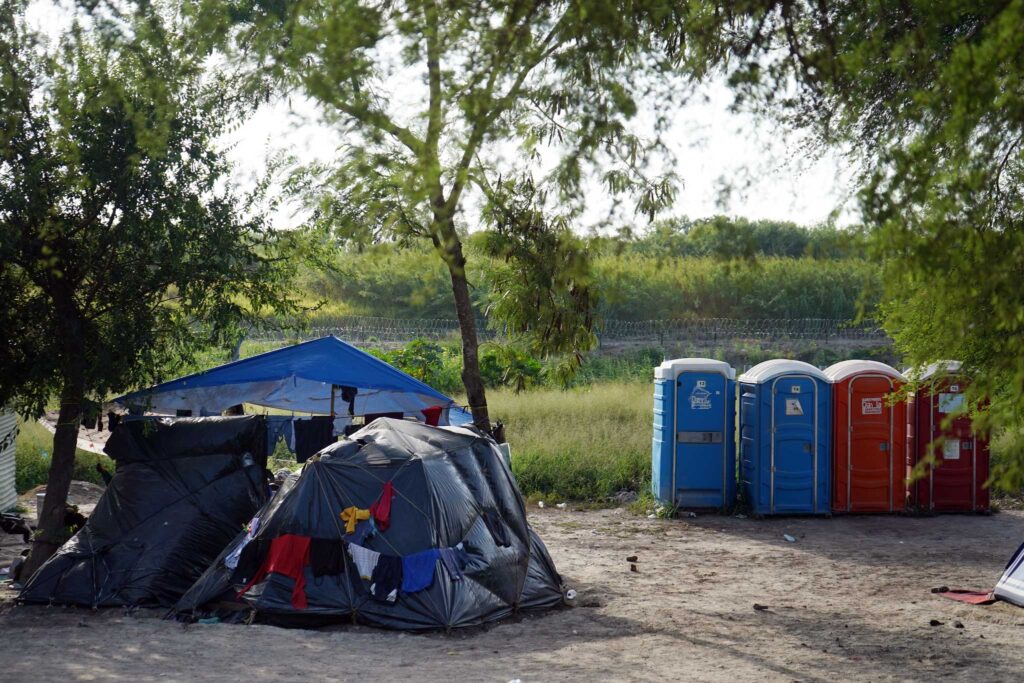
A large part migrant women have these abortions on the road, amid violence, spontaneously, without being recorded, and under conditions of malnutrition, complications due to diseases such as diabetes, hypertension, respiratory infections, vaginal infections; the latter due to lack of of access to bathrooms or hygiene places, said Aracely Pineda, from Pro Salud, an organization that operates in Tijuana.
Such is the case of Valentina, who says that one of her two abortions happened two days after she was released by traffickers who kidnaped her: “I was already feeling bad. I was going to the bathroom; it was no longer my period (menstrual), and I went to the bathroom and I felt like something came out. And it was like dying in the bathroom, alone. My husband was working and well, what else, I had to take a photo and flush it.”
***
This report is part of the series The invisible pain of migrant women, produced with the support of the International Women’s Media Foundation (IWMF) as part of its Reproductive Rights, Health and Justice in the Americas initiative.


